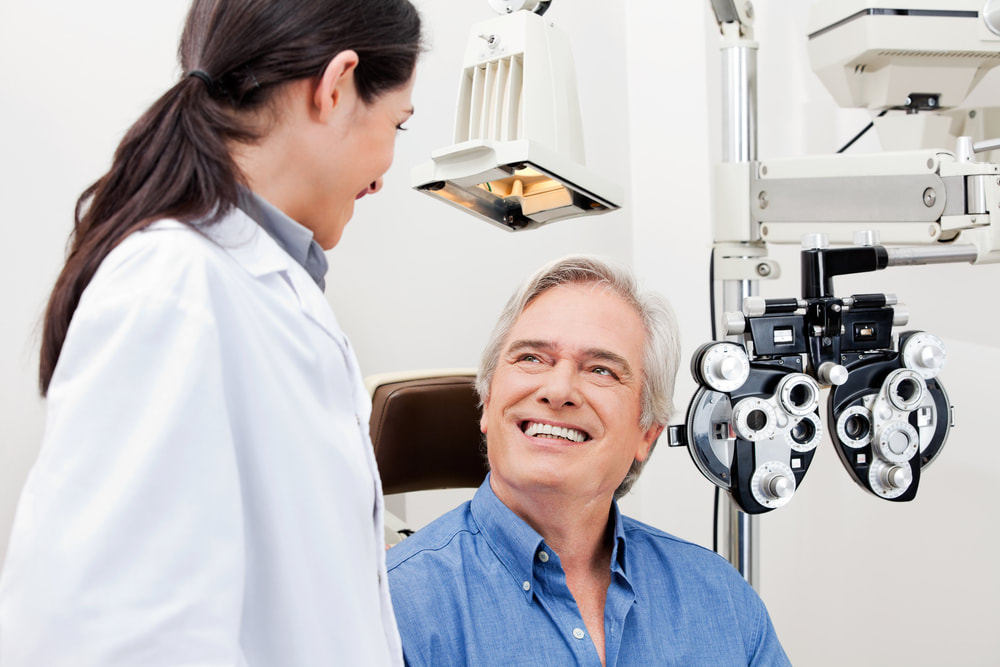Keep in mind, certain risk factors are also controllable. Understanding your risks is the first step to taking control of your eye health. Below are possible risk factors for eye disease. A diagnosis of diabetesHaving diabetes increases your risk of certain eye conditions, such as diabetic retinopathy. According to the Centers for Disease Control and Prevention, about one-third of people with diabetes over 40 have diabetic retinopathy. Take action: If you have diabetes, frequent eye exams are vital to spotting changes as soon as possible. Managing blood sugar levels effectively is also critical. Having high blood pressureHigh blood pressure can damage the blood vessels in your body, including your eyes. This damage can lead to vision problems. It may also increase your risk of a stroke, which can impact vision. Take action: Regularly monitor your blood pressure so you can spot changes. Talk with your doctor about lifestyle steps to lower your blood pressure, such as exercising, watching salt intake, and maintaining a healthy weight. In some cases, your doctor may recommend medication to control blood pressure. A family history of eye diseasesYou may have an increased risk of developing certain eye conditions if you have a family history of the disease. You cannot change your genetics. However, knowing your family health history may allow you to take specific measures to keep your eyes healthy. Take action: Talk with your eye specialist about your family's eye health history. Working in "high-risk" injury occupationsWorkplace eye injuries are common. According to the American Academy of Ophthalmology, about 20,000 eye injuries occur on the job each year. Some of the industries considered high-risk include welding, metalworking, farming, construction, and manufacturing. These jobs may have a high risk of flying shards of metal, wood splinters, tools that slip, and spattered chemicals. Take action: Wearing appropriate protective equipment can significantly reduce your risk. Make sure you understand what type of protective eyewear you need for the activity. A history of eye surgery or eye injuryHaving a past eye injury or surgery may lead to an increased risk of future eye conditions. For example, according to the Glaucoma Foundation, having an eye injury can increase your risk of glaucoma. Take action: Always inform your eye doctor about past eye injuries or surgeries. This helps them be aware of the risks and monitor for certain conditions more closely. Certain medication useMany types of medications have side effects. Some of those side effects may affect your vision. For instance, some types of medications may increase dry eyes.
Take action: Bring a list of medications with you to see your eye doctor. Be sure to include both over-the-counter drugs and prescription medication and supplements. Do not stop taking these medications before talking with your doctor. If you have any risk factors for eye disease, it is essential to have regular eye exams. If you would like to ask whether an appointment with one of our eye doctors would be appropriate at this time, call our office at 508-746-8600. Comments are closed.
|
EYE HEALTH BLOGCategories
All
Archives
July 2024
|
|
Kadrmas Eye Care New England
55 Commerce Way, Plymouth, MA 02360
14 Tobey Road, Wareham, MA 02571 133 Falmouth Road (Rt 28), Mashpee, MA 02649 |
Phone Number:
1-508-746-8600 Hours: Monday through Friday — 8 AM – 4:30 PM |


 RSS Feed
RSS Feed
